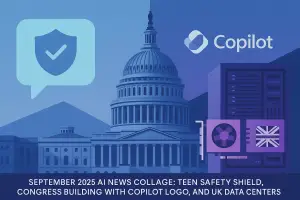Artificial intelligence (AI) is increasingly transforming the educational landscape, offering tools that enhance both teaching and learning experiences. Let’s explore how AI is currently utilized in education, its anticipated developments over the next five years, and its potential long-term impact. We’ll also highlight key companies pioneering AI-driven educational solutions.
Current Applications of AI in Education
- Personalized Learning: AI enables adaptive learning platforms that tailor educational content to individual student needs, allowing learners to progress at their own pace. For instance, intelligent tutoring systems provide customized instruction and feedback, enhancing the learning experience. Wikipedia
- Administrative Efficiency: AI streamlines administrative tasks such as grading and attendance tracking, freeing educators to focus more on student engagement. Automated grading systems assess student work, including essays, providing timely feedback and reducing biases. Wikipedia
- Intelligent Tutoring Systems: AI-powered tutors offer additional support outside the classroom, assisting with homework and reinforcing concepts. These systems adapt to individual learning styles, providing a personalized educational experience. Wikipedia
- Language Learning: AI facilitates language acquisition through applications that offer real-time feedback on pronunciation and grammar, enhancing the learning process. Tools like AI-assisted language learning systems provide interactive and engaging content for learners. Magic EdTech
Projected Developments in the Next Five Years
- Enhanced Collaboration Between AI and Educators: The synergy between AI tools and human teachers is expected to create more personalized, equitable, and effective learning environments. AI can handle data analysis and routine tasks, allowing educators to focus on mentorship and critical thinking development. World Economic Forum
- Immersive Learning Experiences: The integration of AI with Augmented Reality (AR) and Virtual Reality (VR) is anticipated to provide immersive educational experiences, making learning more engaging and effective. These technologies can simulate real-world scenarios, enhancing understanding and retention. Digital Engineering Solutions
- AI-Driven Content Creation: AI is expected to assist in developing educational materials, including lesson plans and assessments, tailored to diverse learning needs. This automation can help educators save time and ensure content is up-to-date and relevant. Digital Engineering Solutions
Long-Term Impact of AI on Education
Looking further ahead, AI has the potential to revolutionize education by:
- Democratizing Access to Quality Education: AI can provide high-quality educational resources to underserved regions, bridging gaps in educational equity. For example, AI-powered platforms can offer personalized learning experiences to students worldwide, regardless of their location. World Economic Forum
- Continuous Learning Analytics: Advanced AI systems could offer real-time analytics on student performance, enabling proactive interventions and support. This data-driven approach can help educators identify and address learning challenges promptly. World Economic Forum
- Lifelong Learning Companions: AI could evolve into personal learning assistants that support individuals throughout their lives, adapting to changing educational and professional needs. These companions can provide resources and guidance tailored to personal growth and career development. World Economic Forum
Leading Companies in AI-Education Integration
- Khan Academy: Introduced “Khanmigo,” an AI-powered tutor and teaching assistant developed in collaboration with OpenAI, providing personalized learning experiences. Time
- Squirrel AI Learning: A Chinese company specializing in intelligent adaptive learning systems, offering AI-driven personalized education solutions. Wikipedia
- GMind AI: A productivity tool designed to assist educators and professionals with content generation and research, enhancing educational processes. Wikipedia
- Carnegie Learning: Provides AI-driven tutoring systems that offer personalized instruction and feedback, enhancing the learning experience. Wikipedia
- Duolingo: Utilizes AI algorithms to analyze individual learning patterns, strengths, and weaknesses, enabling the customization of content to suit each student’s pace and style of learning. Wikipedia
In conclusion, AI is poised to play a pivotal role in transforming education, making it more personalized, efficient, and accessible. The collaboration between AI technologies and educators holds the promise of a more inclusive and effective educational landscape.
Freaky Fact:
In 2018, a robot named “Sophia” was granted citizenship in Saudi Arabia, making it the first AI to receive legal personhood. Imagine a future where AI-powered virtual teachers could one day have legal rights and responsibilities in education systems worldwide!


